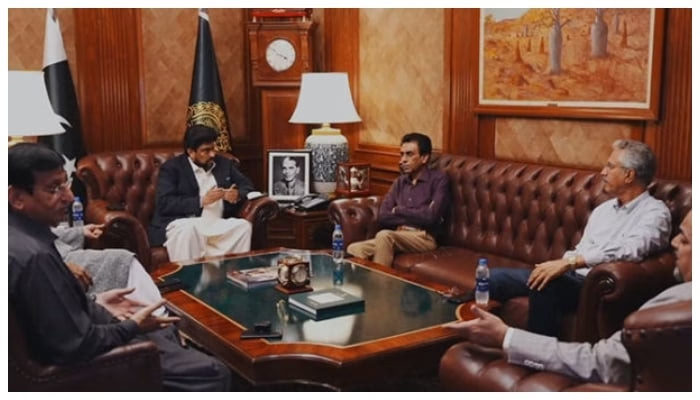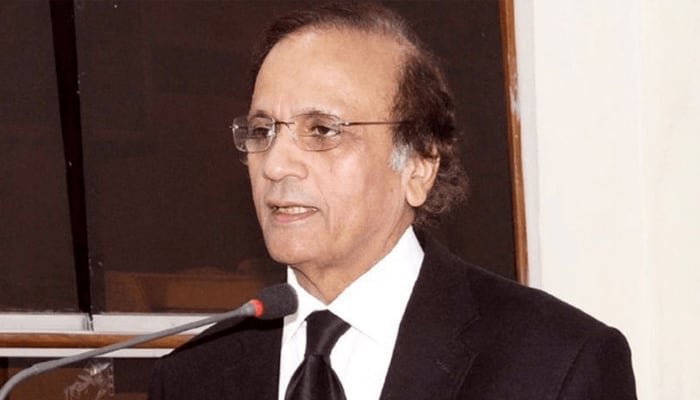The behind-the-scenes details of a significant meeting between Muttahida Qaumi Movement (MQM) leaders and federal ministers at the Governor House have surfaced, revealing growing tensions between the coalition partners ahead of the federal budget announcement.
According to reliable sources, the MQM leadership expressed serious reservations over a proposal to increase the tariff of the Capto Power Plant and to separate it from industrial connections. The party believes that such a move could prove disastrous for Karachi’s industrial sector, threatening production levels, employment opportunities, and export competitiveness.
MQM Unhappy Over Lack of Consultation
During the meeting, MQM representatives voiced their disappointment at being excluded from critical policy discussions. According to sources, MQM leaders firmly told the federal ministers that allies should be taken into confidence before making key decisions.
The MQM delegation emphasized that abrupt decisions affecting Karachi’s economic lifeline not only undermine coalition trust but also make it difficult for MQM to justify its alliance with the federal government to its voter base and business community in the city.
Capto Power Plant Tariff a Flashpoint
A key point of contention was the Capto Power Plant, which provides electricity to Karachi’s industries. MQM leaders argued that increasing tariffs or separating the plant from industries would directly hit production output and lead to layoffs. They warned that this could worsen unemployment in the already economically strained urban center.
In response, the federal ministers reportedly clarified that the decision regarding the Capto Power Plant was not a new one. This matter was already decided in the 2021 cabinet, and implementation is now underway,they said. However, MQM leaders insisted that prior agreements or cabinet decisions must still be discussed with current allies, especially if they have far-reaching economic implications.
Agriculture Tax and the IMF Pressure
The conversation then turned toward fiscal policy, with MQM questioning why the federal government had delegated the taxation of agricultural income to provinces. According to insiders, MQM leaders brought up the IMF’s recommendation to impose taxes on agriculture, pointing out that provincial governments were unlikely to tax powerful landowning elites.
“You saved yourselves by pushing the agricultural tax issue to the provinces,” MQM reportedly said, adding that without broadening the tax base, the burden would continue to fall disproportionately on the salaried and urban middle class. They expressed hope that the upcoming budget would show relief for urban taxpayers, while also bringing agriculture into the national tax net.
Karachi’s Budget Concerns
The MQM delegation also urged the federal government to increase budget allocations for Karachi, arguing that the city faces unique challenges not seen elsewhere in the country. According to sources, the delegation highlighted that Karachi’s business community has growing concerns, and MQM would be held accountable if their grievances are not addressed.
Among their demands, MQM called for:
- A substantial increase in the Karachi-Hyderabad development package
- Priority funding for the Karachi Circular Railway (KCR) revival
- Accelerated work on the long-delayed K-4 water supply project
- More federal investment in infrastructure restoration in Karachi
A Step Toward Dialogue
Despite the criticism, MQM leaders appreciated that the federal government was engaging in pre-budget consultations, something they considered a positive step. However, they made it clear that consultation alone was not enough. We want decisions that reflect the needs of our constituents, said one MQM source
As the budget draws near, this meeting serves as a warning signal for the federal coalition. MQM’s grievances are a reminder that urban economic issues, especially in Karachi, cannot be sidelined without political consequences. The ball is now in the federal government’s court to either address these demands or risk further straining its relationship with a key political ally.
With budget negotiations ongoing and the economic crisis deepening, how the federal government responds to MQM’s concerns may shape the stability of the coalition and the political landscape in Karachi for months to come.



